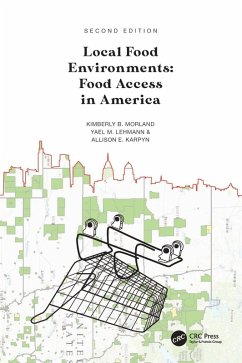"In this book, Morland, Lehmann, and Karpyn discuss the critical need for healthy food financing programs as a vehicle to improve food access for all Americans. In my career as a public servant, there are very few legislative achievements that I'm prouder of than the Healthy Food Financing Initiative, which started in my home state of Pennsylvania. The program gained status as a proven and economically sustainable federal program that is helping to improve the quality of life in our neighborhoods: by allowing millions access to healthy, affordable food." - Congressman Dwight Evans United States House of Representatives, Pennsylvania, District 3 "If we work together, we can create a healthy food system that is equitable and accessible to all. This book highlights the importance of healthy food projects like grocery stores, farmers markets, co-ops, and other healthy food retail in revitalizing local communities across the country. Without basic nourishment, kids and families simply won't be successful - which is why this book is a must read." - Sam Kass President Obama's Senior Nutrition Policy Advisor and Executive Director of Let's Move! "Morland and colleagues' new second edition provides an excellent foundation for courses in food policy and community nutrition. Their detailed review of the economics of local and national food financing will open students' minds to the complexity inherent in measuring and interpreting outcomes." - Robert S. Lawrence, MD, MACP Founder and Former Director of the Center for a Livable Future Johns Hopkins University, Bloomberg School of Public Health Features ¿ Describes how disparities in food access formed in the United States¿¿¿¿¿ ¿ Includes federal policies and programs aimed at addressing food access in underserved areas, including the Healthy Food Financing Initiative¿¿¿¿ ¿ Features examples of state initiatives that address poor access to food retailers¿¿¿¿ ¿ Provides methods for program evaluation utilizing principals of implementation and dissemination science¿¿¿¿ ¿ Includes critical thinking questions and embedded videos aimed to generate discussions on how restricted local food environments in the United States are rooted in economic disparities that impact food access as well as housing, education, and job opportunities ¿¿¿¿
Hinweis: Dieser Artikel kann nur an eine deutsche Lieferadresse ausgeliefert werden.
Hinweis: Dieser Artikel kann nur an eine deutsche Lieferadresse ausgeliefert werden.








